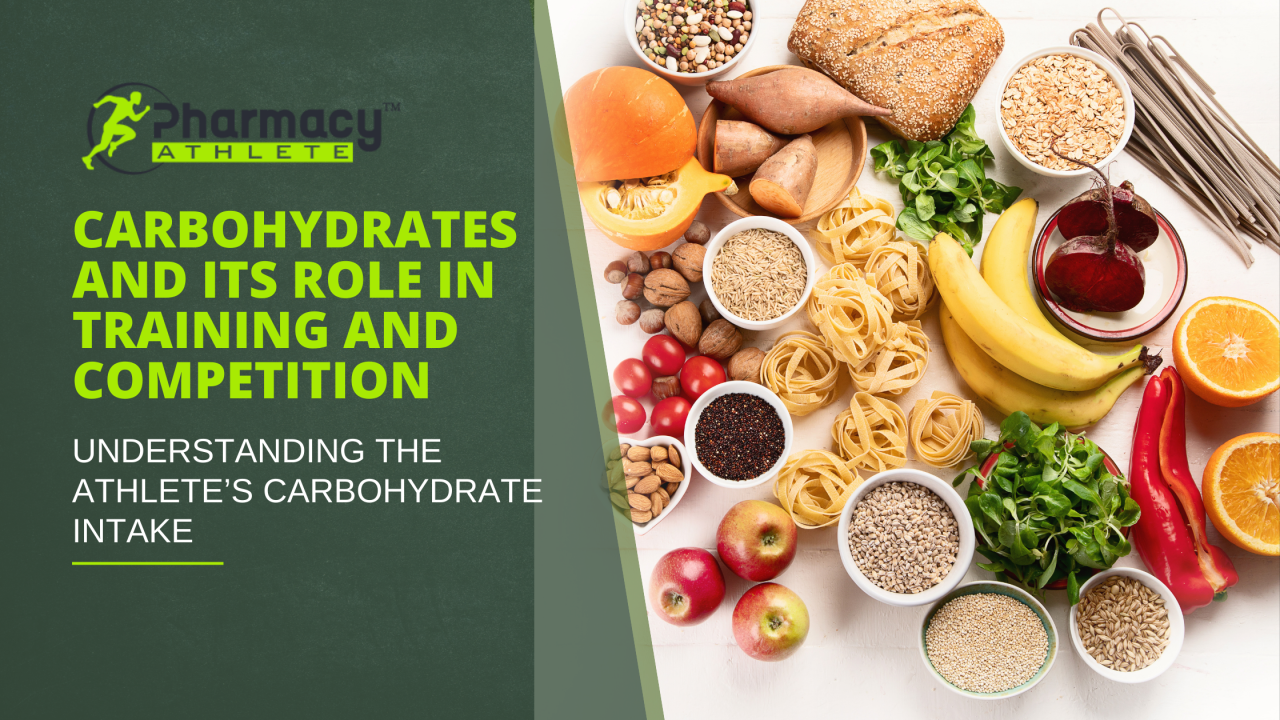Carbohydrates and Training
Sugars, starches and fibers—these are all considered carbohydrates, a group of essential food nutrients that’s converted by the body into glucose that fuels the body’s energy in order to function on a daily basis.
So, when you think about athletes who need a lot more energy than the average human, you’ll already know the important role that carbohydrates play in their diet during training and competition.
Understanding the athlete’s carbohydrate intake
The question is: how much carbohydrates should an athlete take to perform efficiently? It depends on a few factors including the athlete’s total daily intake and the timing of consumption in relation to the amount of exercise or activity he does within the day.
Here are some of the most important points that you need to learn about an athlete’s carbohydrate intake in relation to training and competition:
- The primary goal for learning about carbohydrate intake in athletes is to determine if there’s high carbohydrate availability or the adequate carbohydrate substrate for the muscle and central nervous system or if there’s low carbohydrate availability, which means that carbohydrate fuel sources are limiting for the daily exercise program.
- Carbohydrate intake should be properly timed to fit an athlete’s activities. For instance, carbohydrate intake during exercise should match the intensity and type of event that the body has to go through. Carbohydrate availability is also increased by recommending more carbohydrates in the hours or days before a competition, during intense exercise and as part of recovery in between sessions.
- Exercise can compromise carbohydrate availability because of how intense an athlete’s fuel requirements can get during training and competition. This is why additional carbohydrate becomes necessary to sustain these requirements and ensure the efficiency of an athlete.
The IOC guidelines on the carbohydrate needs of athletes
In 2003, the IOC consensus meeting focused on sports nutrition highlighted the carbohydrate needs of athletes including reviews on pre-exercise eating, proper nutrition while exercising, recovery period and training and nutrient interactions. Here are some of the most important points from this review:
Carbohydrate as daily fuel and recovery
The primary goal during recovery between training and competition is to help the athlete’s body restore its muscle and liver glycogen, especially if the athlete undergoes several workouts within a short period of time.
Although further studies still need to be conducted to determine the amount of carbohydrate intake and the proper timing for it, a study suggested that the use of high molecular weight glucose polymers can help enhance the glycogen storage in the body.
The 2003 recommendation also pointed out that carbohydrate availability is a more apt term to discuss carbohydrate intake.
Strategies in promoting high carbohydrate availability for exercise
As previously studies, manipulating an athlete’s diet and exercise in the days or house leading to an important routine or event will allow the athlete to enjoy sufficient glycogen stores that could help compensate the requirements of that event.
It is said that these glycogen stores can get back to normal within 24 hours of reduced training and adequate fuel intake, that’s if there’s no severe muscle damage incurred from the competition.
Another study also suggested that events lasting more than 90 minutes could benefit from increasing glycogen stores.
You probably heard about the term “carbohydrate loading” that’s still being practiced by a lot of athletes to this day. The first studies showed that instead of manipulating nutrition, periods of depletion were implemented followed by a 3-day loading phase.
Although this strategy still needs more study, past research revealed that effects can still vary depending on the athlete. The same considerations are followed in the recommendations for pre-event carbohydrate intake that involved a few concepts including:
- Glycaemic index where pre-exercise meals involving carbohydrate-rich foods benefited athletes in terms of metabolism and substrate utilization.
- The benefits of consuming carbohydrates before and during exercise to add to the fuel source needed by the muscles and central nervous system.
- Increasing carbohydrate intake during exercise and high-intensity events helped cope up with the fuel requirements of the body and whenever the need for additional nutrition is seen in an athlete.
- With adequate nutritional preparation, there hasn’t been a huge difference in fuel requirements and the availability of muscle glycogen stores in athletes doing sports or high-intensity exercise lasting more than one hour.
New recommendations for training adaptation
As further research is being done regarding proper nutrition in athletes, there has been a few important concepts that should be embraced as part of training adaptation:
- A study suggested that athletes should follow dietary periodization where they should “train low” to promote better training response, after which they can switch to high carbohydrate availability to boost energy fuel source and increase performance during competitions.
- This concept still depend a lot on the individual requirements of athletes and how they adapt to dietary periodization. Some workouts are designed to reduce carbohydrate availability while others promote good carbohydrate support throughout their duration.
- These findings led researchers to believe that the discussion shouldn’t be centered around the benefits of dietary periodization with carbohydrate availability but on whether this strategy should be maximized to an athlete’s advantage of not.
- As of today, studies recommend using good carbohydrate availability for events or trainings requiring high intensity or high levels of skill or technique while it’s not highly necessary for low intensity workouts or events and even the conditioning practices that’s usually done by athletes at the beginning of the season.
The bottomline
There is still a long way to go before we can fully understand the role of carbohydrates in training and competition, and most importantly, how it should be utilized to improve performance without causing any long-term effects on an athlete.
So, while the concepts of carbohydrate availability and its related ideas are still under debate, athletes should follow the advice of trainers and nutrition coaches who know exactly what their bodies need to increase efficiency and prevent injuries.
The future is definitely looking bright for this area of nutrition, that’s for sure.


